Yes, new fathers can experience mood changes after bringing baby home
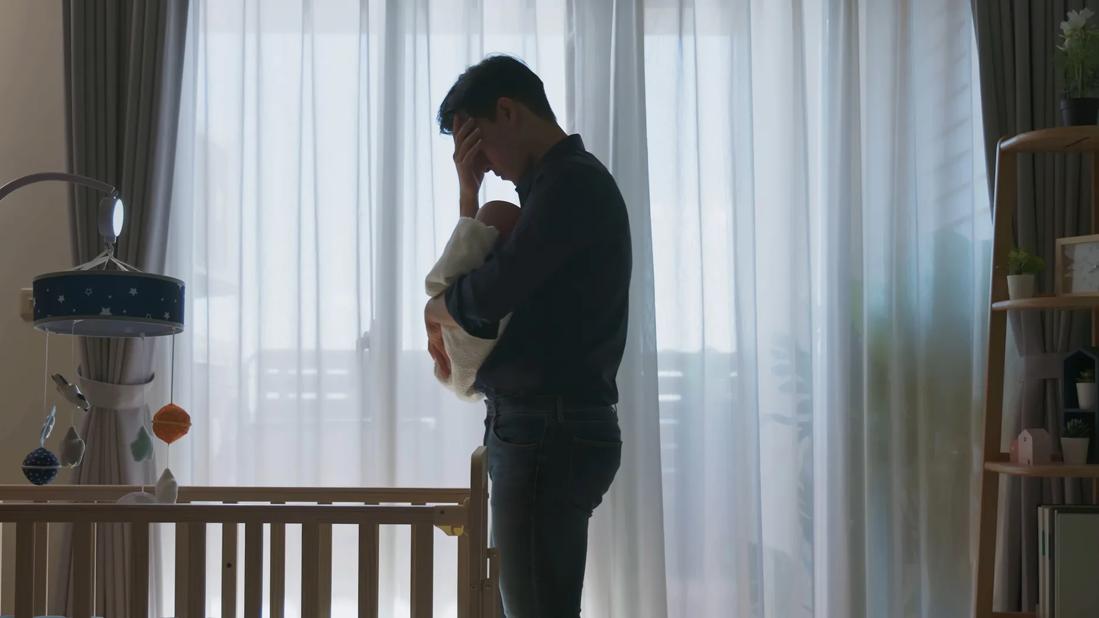
We typically associate the “baby blues” and postpartum depression with women. But you may not know that new fathers can be at risk, too.
Advertisement
Cleveland Clinic is a non-profit academic medical center. Advertising on our site helps support our mission. We do not endorse non-Cleveland Clinic products or services. Policy
In fact, male postpartum depression, or paternal postpartum depression, is quite common, says psychologist Adam Borland, PsyD. About 10% of fathers experience depression before or soon after their child is born, according to research published in the Journal of the American Medical Association.
Here’s what to look for.
Men with postpartum depression (or depression in general) can be more likely to come across as angry, irritable or aggressive. That can come as a surprise, as we often think of depression symptoms as things like sadness and tearfulness.
“Men with depression can be mistaken for being angry, irritable or ‘crabby,’” Dr. Borland points out. “The expectation a lot of people hold is that depression presents as sadness. And while it can, it doesn’t always.”
Typical signs of male postpartum depression (PPD) can include:
Severe depression can lead to thoughts of self-harm.
Seek emergency support if you have thoughts of harming yourself or others. Get immediate help from the Suicide & Crisis Lifeline by dialing or texting 988, or visit 988lifeline.org.
Advertisement
The causes of male PPD are partly biological and partly due to changes in relationship dynamics after childbirth, Dr. Borland says.
Let’s be clear about a few things: Paternal postpartum depression isn’t a sign that you don’t love your baby. Or your partner. Or the new life you’re forging.
It’s about the way that your body and mind react to those first few months of bringing home a baby. Those early days can be chaotic, destabilizing and stressful. And it can trigger a depressive episode.
“When you become a parent, your life changes in an instant,” Dr. Borland empathizes. “Even the most devoted parents experience postpartum depression. It’s not a reflection on you as a parent or a person. It doesn’t mean you’re a ‘bad dad.’ And it doesn’t mean you’ll feel this way forever.”
When a baby enters the picture, it can cause changes in male hormones. There’s evidence that testosterone decreases after the birth of a child. Researchers theorize that could be an evolutionary change that helps fathers bond with and care for their babies. But low testosterone can share a lot of symptoms of depression.
“We know a lot about how women’s hormones change during and after pregnancy. But men also experience changes in their hormone levels after a child is born, too,” he adds.
And it goes beyond hormones.
Bringing home a baby can change everything. And that can do a number on your mental health — triggering increased anxiety, stress and, yes, male postpartum depression.
Consider these potential causes:
Male postpartum depression is real, but you can feel better with medication, therapy and self-care.
Again, if you have any thoughts of harming yourself or others, seek immediate treatment. If your symptoms are less severe, contacting a healthcare provider, like a primary care physician or mental health specialist, can make a big difference.
Advertisement
“Men are often taught that seeking support for their mental health is a sign of weakness. But it’s not. And if you’re living with male postpartum depression, it’s the best step you can take to best care for yourself and your family,” Dr. Borland advocates.
To maintain a positive mood when you’re in the thick of new fatherhood, Dr. Borland recommends also focusing on the self-care basics (as best you can with baby in tow):
Adjusting to a new baby takes time. It’s normal for your mood to be rocky in the process. But if your symptoms last more than two to three weeks, don’t hesitate to reach out for help.
“There’s nothing shameful or embarrassing about male postpartum depression,” Dr. Borland emphasizes. “Fatherhood is a huge new job, with long hours and no pay, and you deserve support. Asking for help doesn’t mean you’re helpless. It means you’re doing what you need to do so you can be the best man — and best dad — you can be.”
Advertisement
Advertisement
Learn more about our editorial process.
Advertisement
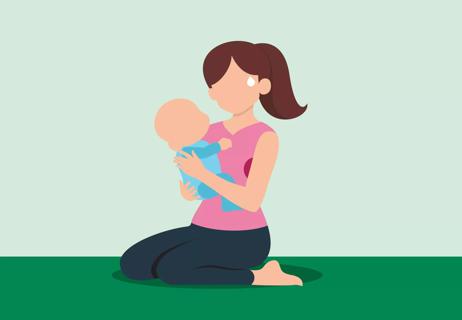
But if you’re worried, don’t hesitate to call your doctor or midwife
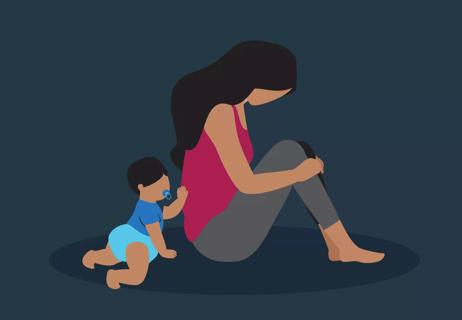
Heavy bleeding, pain and persistent sadness could be something more serious

A timeline of what to know after delivering your baby
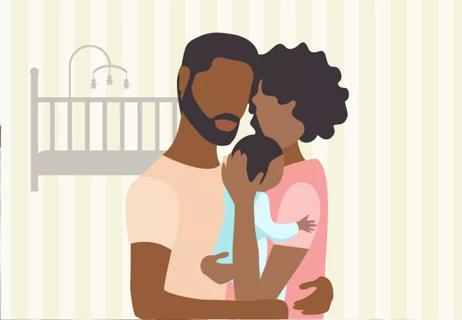
Having sex after giving birth isn’t only about being medically ready
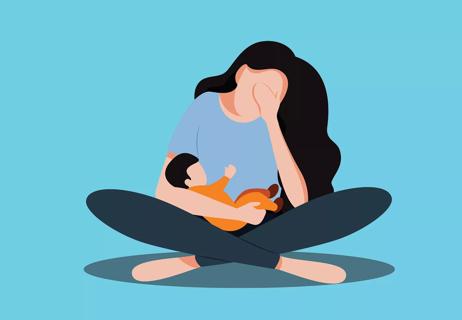
It’s normal to experience some changes
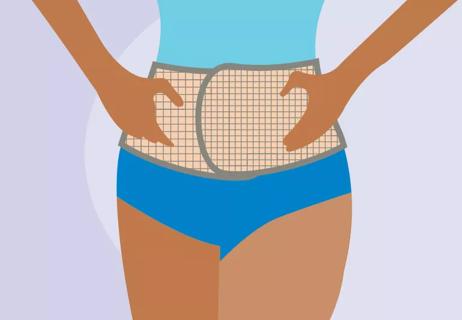
Belly wraps provide physical support after you give birth

Sad feelings and teariness that persist are a sign
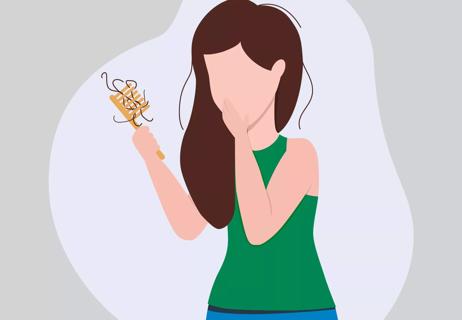
Patience is the best solution

If you’re feeling short of breath, sleep can be tough — propping yourself up or sleeping on your side may help

If you fear the unknown or find yourself needing reassurance often, you may identify with this attachment style

If you’re looking to boost your gut health, it’s better to get fiber from whole foods